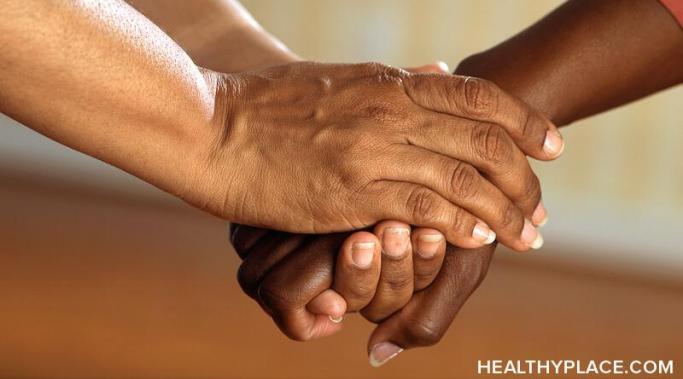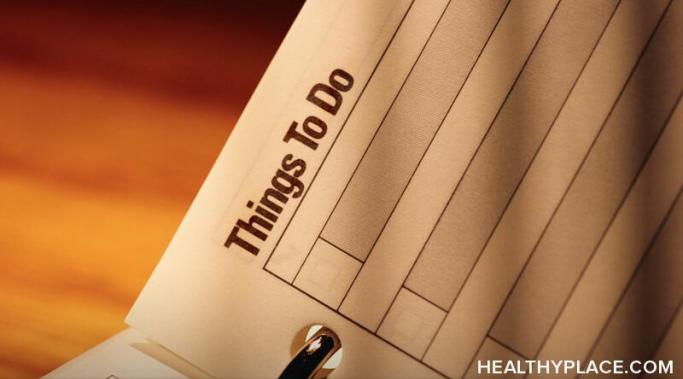Believe it or not, a mundane trip to the grocery store helped me learn to enjoy food again. The year was 2019. I had recently moved across the United States from Florida to Arizona. And in my new zip code, there was a Trader Joe's on almost every corner. I am aware that makes me come across as a basic Millennial stereotype (which I own, for the record), but living near Trader Joe's has proven to be a crucial milestone in my eating disorder recovery. Here's how this grocery store helped me learn to enjoy food again—and to eat what I love without shame.
Coping Skills for Eating Disorder Recovery
Recently, I posed a challenge to myself to see if I could tolerate one day without a fitness tracker. This experiment should have been simple: Just set the device aside, then continue with all my normal activities for about 12 hours. The key phrase here is "should have been simple." But to be honest, it was so painfully difficult. Here's why I took on this endeavor—plus the humbling lessons I learned from one day without a fitness tracker.
I know it can be hard to believe sometimes, but needing help with eating disorder (ED) recovery is not a sign of weakness. It's one of the bravest actions you can take. Internalized fears or anxieties might whisper in your ear that asking for help means you are a failure, a burden, or a lost cause. But I hope you can trust me on this: Those inner voices aren't telling you the truth. It's okay to need help with ED recovery.
In my own experience, healing is intensive, painful, and humbling work. No one I've met (including myself) has been able to successfully pursue it alone. So, if you could use an extra boost of care, support, advice, or encouragement, don't allow fear to intimidate you from reaching out. I promise needing help with ED recovery is not a sign of weakness.
Confession: I don't want to make eating disorder (ED) recovery resolutions this year. In the past, I have dutifully written an exhaustive list of all the milestones I intend to reach in my healing journey, but as 2024 rounds the corner, this ritual suddenly feels more like pressure than motivation. I am a firm believer that recovery is not about ticking off certain boxes or following an arbitrary schedule. I set goals for myself, but I have learned to release expectations as to when I might achieve them. Maybe I'll form a healthier relationship with my own body as soon as tomorrow—or maybe it will take me a lifetime. Either way, I am done trying to force specific outcomes, so I don't want to make ED recovery resolutions this year.
I realize now that I need to accept a lack of control in my eating disorder recovery. My battle with anorexia was never just about caloric restriction or exercise compulsion. Those behaviors were surface-level indicators of a more complex issue underneath. The main fear that drove my illness had nothing to do with food itself—on the contrary, I longed for nourishment and sustenance. My source of terror was a loss of control.
My eating disorder lessons actually make me feel grateful. Gratitude is a recurring theme that defines the entire holiday season. In fact, this value is thrown around so often in the frenetic build-up to each new year that it's easy to overlook just how powerful gratitude is. When I strip away all those cliché axioms and intentionally reflect on what it means to be thankful, I'm humbled by the sheer amount of blessings in my life. But then, as I lean deeper into self-reflection, I feel a curious swell of gratitude in an area I would normally least expect. This year, I am grateful for the lessons of my eating disorder.
I recently learned the value of practicing stillness. I spent the last two weeks overseas in Nepal, immersing myself in a culture and climate so marvelously different from my own. I embarked on this journey expecting to learn about another unique way of life—and I most certainly have. But in the process, I also encountered lessons that challenged my current relationship with body image, mental health, and personal growth as a whole. To be more specific, my time in Nepal has shown me the value of practicing stillness in eating disorder recovery.
Here's an inside look at the first line of my latest journal entry: "I am an eating disorder survivor. I am not an eating disorder savior." In other words, I have no power to rescue anyone else from a harmful relationship with food, exercise, or body image. No matter how desperately I want to be of help and service, I cannot force another person to embrace their healing journey. I can cheer them on toward recovery, but I will never be able to control their actions or decisions. Nor should I even attempt to hijack that responsibility in the first place. It doesn't belong to me. But if I already know that I am not an eating disorder savior, why do I still need a reminder? The short answer is that I always think I can manage this self-proclaimed role—until I can't.
A common symptom of anorexia is associating specific foods with shame, fear, or distress. In spite of all the progress I've made to heal from my eating disorder, this restrictive outlook on food still remains one of the toughest myths to dispel. But with some encouragement from my personal trainer, I have recently started taking certain foods out of the shame category. Here's what I am discovering in the process.
Over the past week, I have been reflecting on the acute but nuanced complexity of living in a woman's body. (That is, anyone who identifies as a woman, including those in the lesbian, gay, bisexual, transgender, queer, plus [LGBTQ+] community.) This isn't a new revelation, of course. I've written about how sexism fuels eating disorder behaviors and my own experiences to corroborate that. But I often shove any potential threat of bodily harm, control, or objectification to the margins of my subconscious in order to function as a human. Most women I know default to this coping mechanism as well. However, thanks to a recent global controversy, I (and countless others) am once again forced to reckon with the complexity of living in a woman's body.








